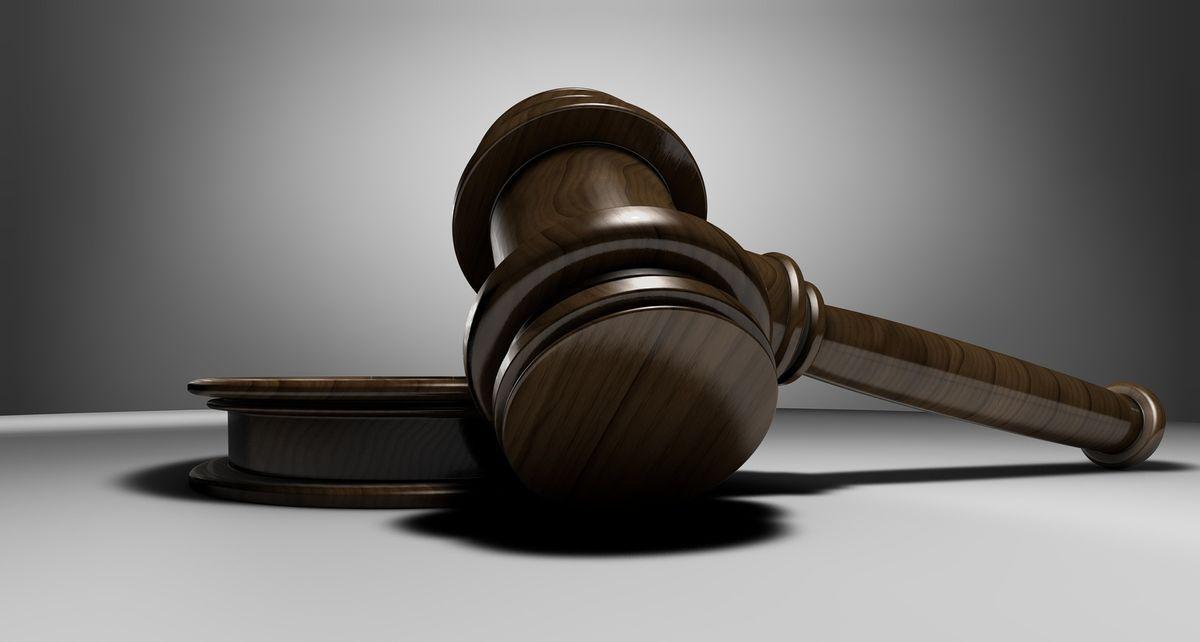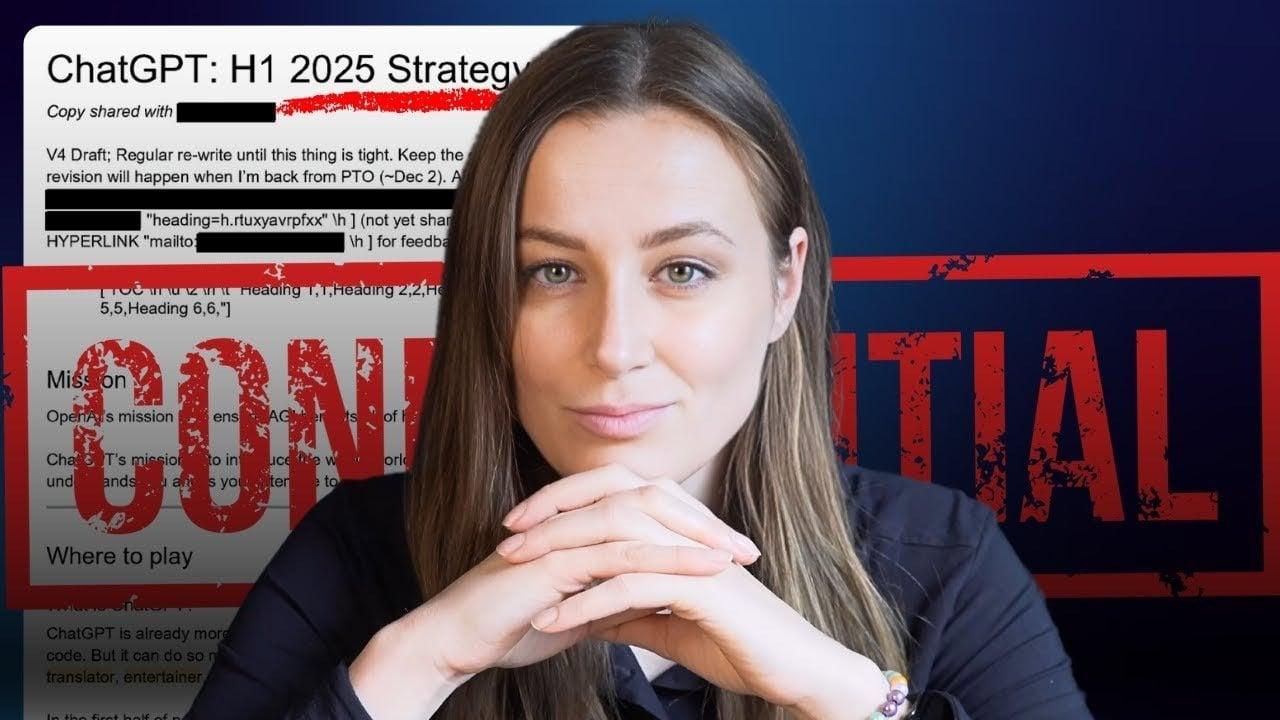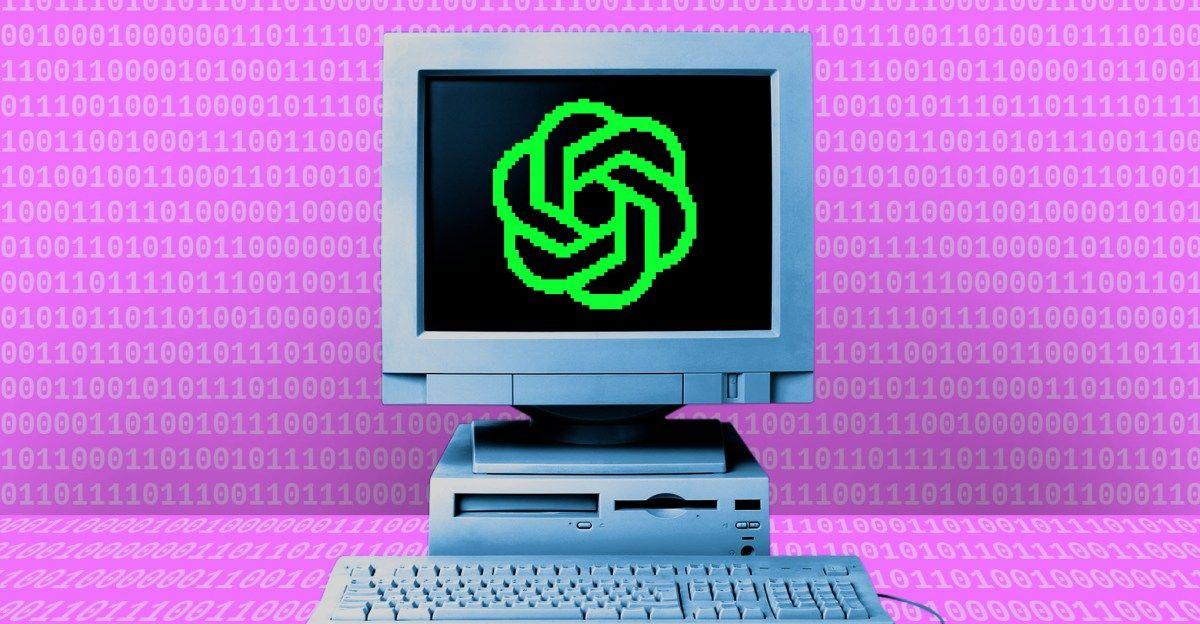Court Order Mandates OpenAI to Retain ChatGPT Conversations, Raising Privacy Concerns
2 Sources
2 Sources
[1]
New judge's ruling makes OpenAI keeping a record of all your ChatGPT chats one step closer to reality
The order followed a request by The New York Times as part of its lawsuit against OpenAI and Microsoft OpenAI will be holding onto all of your conversations with ChatGPT and possibly sharing them with a lot of lawyers, even the ones you thought you deleted. That's the upshot of an order from the federal judge overseeing a lawsuit brought against OpenAI by The New York Times over copyright infringement. Judge Ona Wang upheld her earlier order to preserve all ChatGPT conversations for evidence after rejecting a motion by ChatGPT user Aidan Hunt, one of several from ChatGPT users asking her to rescind the order over privacy and other concerns. Judge Wang told OpenAI to "indefinitely" preserve ChatGPT's outputs since the Times pointed out that would be a way to tell if the chatbot has illegally recreated articles without paying the original publishers. But finding those examples means hanging onto every intimate, awkward, or just private communication anyone's had with the chatbot. Though what users write isn't part of the order, it's not hard to imagine working out who was conversing with ChatGPT about what personal topic based on what the AI wrote. In fact, the more personal the discussion, the easier it would probably be to identify the user. Hunt pointed out that he had no warning that this might happen until he saw a report about the order in an online forum. and is now concerned that his conversations with ChatGPT might be disseminated, including "highly sensitive personal and commercial information." He asked the judge to vacate the order or modify it to leave out especially private content, like conversations conducted in private mode, or when there are medical or legal matters discussed. According to Hunt, the judge was overstepping her bounds with the order because "this case involves important, novel constitutional questions about the privacy rights incident to artificial intelligence usage - a rapidly developing area of law - and the ability of a magistrate [judge] to institute a nationwide mass surveillance program by means of a discovery order in a civil case." Judge Wang rejected his request because they aren't related to the copyright issue at hand. She emphasized that it's about preservation, not disclosure, and that it's hardly unique or uncommon for the courts to tell a private company to hold onto certain records for litigation. That's technically correct, but, understandably, an everyday person using ChatGPT might not feel that way. She also seemed to particularly dislike the mass surveillance accusation, quoting that section of Hunt's petition and slamming it with the legal language equivalent of a diss track. Judge Wang added a "[sic]" to the quote from Hunt's filing and a footnote pointing out that the petition "does not explain how a court's document retention order that directs the preservation, segregation, and retention of certain privately held data by a private company for the limited purposes of litigation is, or could be, a "nationwide mass surveillance program." It is not. The judiciary is not a law enforcement agency." That 'sic burn' aside, there's still a chance the order will be rescinded or modified after OpenAI goes to court this week to push back against it as part of the larger paperwork battle around the lawsuit. Hunt's other concern is that, regardless of how this case goes, OpenAI will now have the ability to retain chats that users believed were deleted and could use them in the future. There are concerns over whether OpenAI will lean into protecting user privacy over legal expedience. OpenAI has so far argued in favor of that privacy and has asked the court for oral arguments to challenge the retention order that will take place this week. The company has said it wants to push back hard on behalf of its users. But in the meantime, your chat logs are in limbo. Many may have felt that writing into ChatGPT is like talking to a friend who can keep a secret. Perhaps more will now understand that it still acts like a computer program, and the equivalent of your browser history and Google search terms are still in there. At the very least, hopefully, there will be more transparency. Even if it's the courts demanding that AI companies retain sensitive data, users should be notified by the companies. We shouldn't discover it by chance on a web forum. And if OpenAI really wants to protect its users, it could start offering more granular controls: clear toggles for anonymous mode, stronger deletion guarantees, and alerts when conversations are being preserved for legal reasons. Until then, it might be wise to treat ChatGPT a bit less like a therapist and a bit more like a coworker who might be wearing a wire.
[2]
OpenAI's ChatGPT Data Retention Policy Explained : Is Your Data at Risk?
What if the tool you rely on to streamline your work or spark creativity was quietly turning into a data liability? Recent revelations about OpenAI's ChatGPT have sparked a storm of controversy, with a leaked strategy document exposing plans to transform the AI into a deeply personalized "super assistant." While this vision promises unprecedented convenience, it comes at a cost: your privacy and data security. Compounding the issue, a federal court order now mandates OpenAI to retain all ChatGPT conversations indefinitely, including sensitive or deleted content. For businesses and individuals alike, this raises unsettling questions about data ownership, compliance, and the risks of entrusting proprietary information to AI systems. Goda Go dives into the tangled web of privacy risks, legal challenges, and ethical dilemmas surrounding ChatGPT's evolution. From the implications of retaining sensitive data to the looming copyright battle with The New York Times, the stakes are higher than ever. You'll uncover how OpenAI's ambitions could reshape the way we interact with AI -- and why it's critical to rethink how we use these tools. As the line between innovation and intrusion blurs, the question remains: can we truly trust AI to safeguard what matters most? The court order requires OpenAI to preserve all ChatGPT interactions, including deleted and temporary chats. This directive directly conflicts with OpenAI's stated privacy policies and global regulations such as the General Data Protection Regulation (GDPR). For businesses, this creates significant risks: sensitive data entered into ChatGPT -- such as financial records, proprietary strategies, or personal information -- could potentially become accessible to legal authorities or third parties. The lawsuit filed by The New York Times adds another layer of complexity. It alleges that ChatGPT may reproduce copyrighted material verbatim, necessitating the retention of chat histories to investigate potential copyright infringements. This legal battle highlights the growing tension between AI's capabilities and intellectual property rights, raising critical questions about how AI systems are trained and deployed. These developments underscore the need for businesses to carefully evaluate how they use AI tools like ChatGPT, particularly when handling sensitive or proprietary information. Leaked strategy documents from OpenAI outline an ambitious plan to evolve ChatGPT into a "super assistant" capable of delivering deeply personalized user interactions. This envisioned assistant would integrate seamlessly across platforms, potentially replacing traditional tools and even some human interactions. While this vision promises enhanced convenience and efficiency, it also raises significant concerns about data ownership, privacy, and security. To achieve this level of personalization, the system would need to collect and analyze vast amounts of user data. However, this approach increases the risk of exposing sensitive information or creating vulnerabilities for misuse. The prospect of a highly integrated AI assistant highlights the urgent need for robust data protection measures and transparent policies to safeguard user information. Without these safeguards, the potential benefits of a "super assistant" could be overshadowed by the risks it introduces. AI reliability remains a pressing issue, as demonstrated by real-world examples of decision-making errors. For instance, AI systems have misclassified healthcare contracts, leading to disruptions in critical services for veterans. Such incidents reveal the limitations of current AI technologies in managing complex tasks and large datasets with precision. These errors emphasize the risks of over-relying on AI in high-stakes environments such as healthcare, finance, and legal services. While AI tools can enhance efficiency and streamline operations, businesses must carefully weigh their benefits against the potential for costly mistakes. Making sure that AI systems are used responsibly and with appropriate oversight is essential to minimizing these risks. The risks associated with using ChatGPT extend beyond privacy concerns to include compliance challenges, particularly for industries with strict regulatory requirements like healthcare and finance. Sensitive customer information, financial data, and proprietary strategies entered into ChatGPT could be exposed or misused, leading to severe consequences. To mitigate these risks, businesses should reassess their use of AI tools. Unless enterprise-level solutions with zero data retention agreements are in place, organizations should avoid inputting sensitive data into ChatGPT. Failure to do so could result in regulatory penalties, reputational damage, and financial losses. Businesses must also stay informed about evolving regulations and legal precedents that could impact their use of AI technologies. For businesses seeking more secure AI solutions, several alternatives offer enhanced privacy protections. These options include: These alternatives provide businesses with options to use AI while maintaining higher levels of data security and compliance. By exploring these solutions, organizations can continue to benefit from AI technologies without compromising sensitive information. To navigate the evolving AI landscape and safeguard sensitive information, businesses should take the following steps: By adopting these measures, organizations can reduce risks while continuing to benefit from AI technologies. Proactively addressing these challenges will enable businesses to harness the potential of AI while protecting their most valuable assets. The court order requiring OpenAI to retain ChatGPT conversations could set a precedent for future legal actions against AI companies. As AI technologies advance, businesses must prioritize data ownership, privacy, and compliance to mitigate risks. Adopting safer AI alternatives and implementing robust data management practices will be critical for organizations aiming to protect their sensitive information. The rapidly evolving regulatory and technological landscape demands vigilance and adaptability. As AI becomes increasingly integrated into daily operations, businesses must remain proactive in addressing its challenges and opportunities. By doing so, they can use the fantastic potential of AI while safeguarding privacy and compliance in an ever-changing environment.
Share
Share
Copy Link
A federal judge's ruling requires OpenAI to preserve all ChatGPT conversations indefinitely, sparking debates on user privacy, data retention, and the future of AI regulation.
Court Order Mandates ChatGPT Conversation Retention
In a significant development for AI privacy and regulation, Federal Judge Ona Wang has upheld an order requiring OpenAI to "indefinitely" preserve all ChatGPT outputs. This ruling comes as part of a copyright infringement lawsuit filed by The New York Times against OpenAI and Microsoft
1
.
Source: TechRadar
The preservation order aims to provide evidence for determining if ChatGPT has illegally reproduced articles without compensating publishers. However, this decision has sparked concerns about user privacy and data retention practices.
Privacy Implications and User Concerns
The court order has raised alarms among ChatGPT users, who fear their private conversations may be exposed. Aidan Hunt, a ChatGPT user, filed a motion to rescind the order, citing concerns about the potential dissemination of "highly sensitive personal and commercial information"
1
.Judge Wang rejected Hunt's request, emphasizing that the order pertains to preservation, not disclosure. She also dismissed claims of instituting a "nationwide mass surveillance program," stating that the judiciary is not a law enforcement agency
1
.OpenAI's Response and Future Implications
OpenAI has expressed intentions to challenge the retention order, with oral arguments scheduled for this week. The company claims to prioritize user privacy and aims to push back against the court's decision on behalf of its users
1
.This situation highlights the need for greater transparency in AI data retention policies. Users should be notified when their conversations are being preserved for legal reasons, and AI companies may need to offer more granular controls for privacy settings
1
.Business Risks and Compliance Challenges
The court order creates significant risks for businesses using ChatGPT, particularly those in industries with strict regulatory requirements. Sensitive data entered into the AI tool could potentially become accessible to legal authorities or third parties, raising concerns about data ownership, compliance, and security
2
.
Source: Geeky Gadgets
Organizations are now faced with the challenge of balancing the benefits of AI tools against potential legal and privacy risks. The situation underscores the importance of carefully evaluating how AI systems are used, especially when handling proprietary or sensitive information.
Related Stories
Alternative AI Solutions and Best Practices
In light of these developments, businesses are encouraged to explore alternative AI solutions that offer enhanced privacy protections. Some options include:
- On-premises AI models
- Open-source alternatives with customizable privacy settings
- Enterprise-level solutions with zero data retention agreements
2
To mitigate risks, organizations should implement best practices such as:
- Conducting thorough risk assessments of AI tools
- Developing clear policies for AI usage
- Training employees on responsible AI use
- Regularly auditing AI interactions
- Staying informed about evolving AI regulations
2
The Future of AI Regulation and Innovation
This court order could set a precedent for future legal actions against AI companies, potentially reshaping the landscape of AI regulation. As the line between innovation and privacy concerns blurs, the AI industry may face increased scrutiny and demands for greater accountability
2
.The ongoing legal battle and privacy debates surrounding ChatGPT highlight the complex challenges facing AI development. As these technologies continue to evolve, finding a balance between innovation, user privacy, and legal compliance will be crucial for the future of AI integration in business and society.
References
Summarized by
Navi
[1]
Related Stories
NYT Wins Court Battle to Access ChatGPT Logs, Raising Privacy Concerns
03 Jul 2025•Policy and Regulation

OpenAI CEO Warns: ChatGPT Conversations Lack Legal Confidentiality
26 Jul 2025•Technology

OpenAI Forced to Retain Deleted ChatGPT Conversations Amid NYT Lawsuit, Sparking Privacy Concerns
06 Jun 2025•Technology

Recent Highlights
1
ByteDance Faces Hollywood Backlash After Seedance 2.0 Creates Unauthorized Celebrity Deepfakes
Technology

2
Microsoft AI chief predicts artificial intelligence will automate most white-collar jobs in 18 months
Business and Economy

3
Google reports state-sponsored hackers exploit Gemini AI across all stages of cyberattacks
Technology




